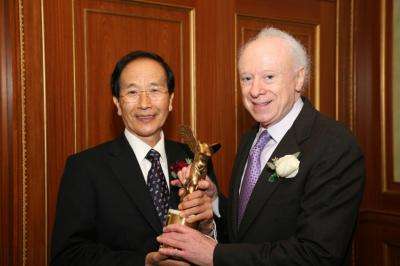Why didn't these pioneers of medicine receive a Nobel Prize?

Should the Nobel Prize for Physiology or Medicine be divided into two, with separate Prizes for basic scientific discoveries (Physiology) and for advances in clinical or translational research (Medicine)?
Some of the outstanding scientists and physicians to receive the Nobel Prize in Physiology or Medicine were depicted recently in Nobel Prizes That Changed Medicine. This book is the sequel and describes an equally remarkable group of individuals who, despite the importance of their discoveries for Medicine, have not received the Nobel Prize.
Many of the individuals who feature in the book have been recipients of a Lasker Award, often regarded as America's equivalent of the Nobel Prize. The aptness of this analogy is illustrated by the fact that almost half of the Nobel laureates in Physiology or Medicine since the Second World War had already won Lasker Awards. It is striking that nearly all of the Nobel Prize winners in Nobel Prizes that changed Medicine who had previously won a Lasker were given a Basic Medical Research Award whereas most of the scientists in Pioneers of Medicine without a Nobel Prize who won a Lasker received a Clinical Medical Research Award; this suggests that clinical or applied research is regarded less highly than basic research by the Nobel Assembly.
The fact is that that there are simply not enough Nobel Prizes to reward all those who have made major discoveries since they were inaugurated in 1901. The Prize in Physiology or Medicine is limited to a maximum of three laureates annually and an embarrass de richesses of outstanding candidates means that hard and difficult choices have to be made every year in Stockholm. This dilemma might be resolved if the Physiology and Medicine components of the Prize were treated as separate awards, thereby doubling the number of recipients.
More information:
For more information on the book, visit www.worldscientific.com/r/pr/w … cibooks/10.1142/p922
Provided by World Scientific Publishing